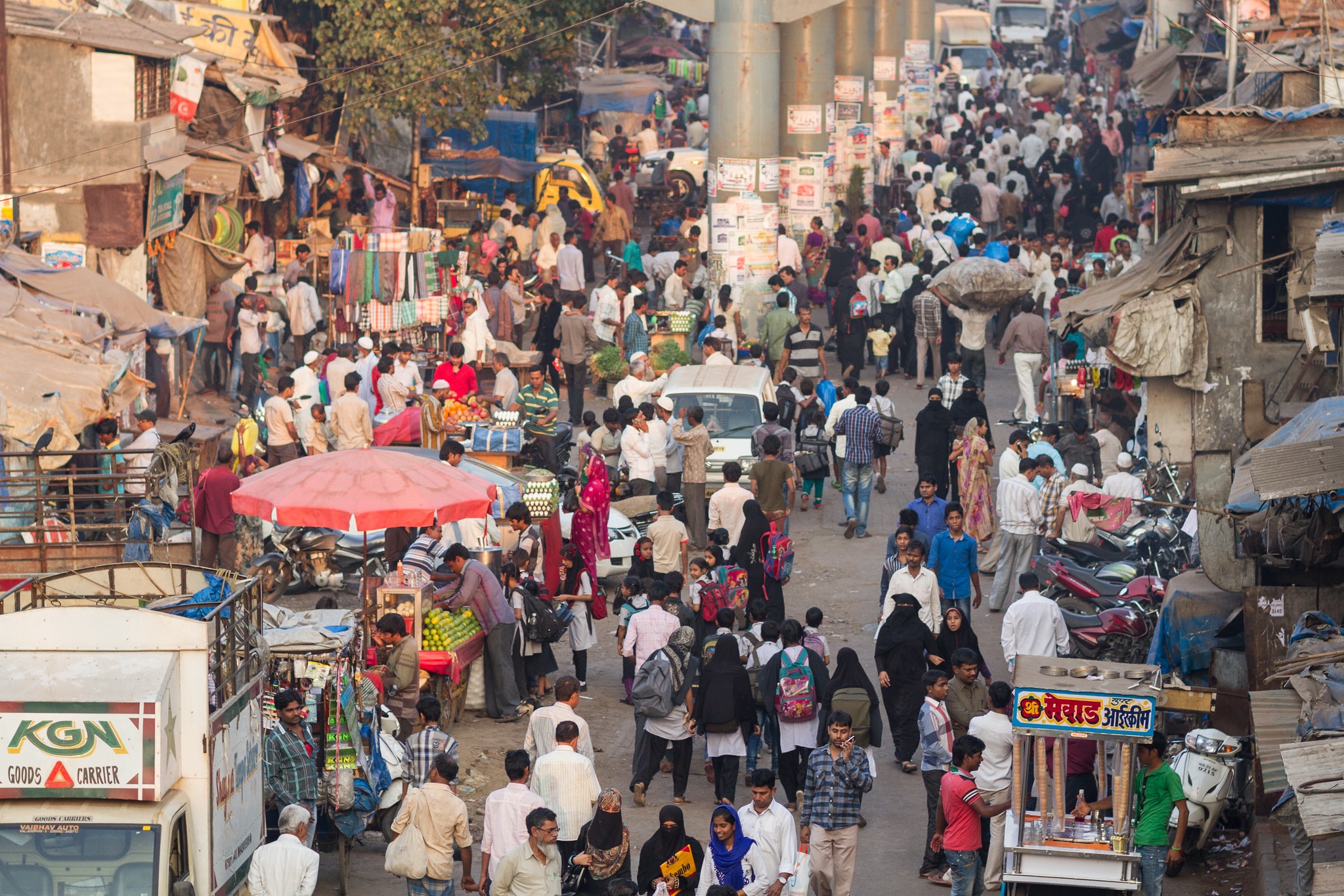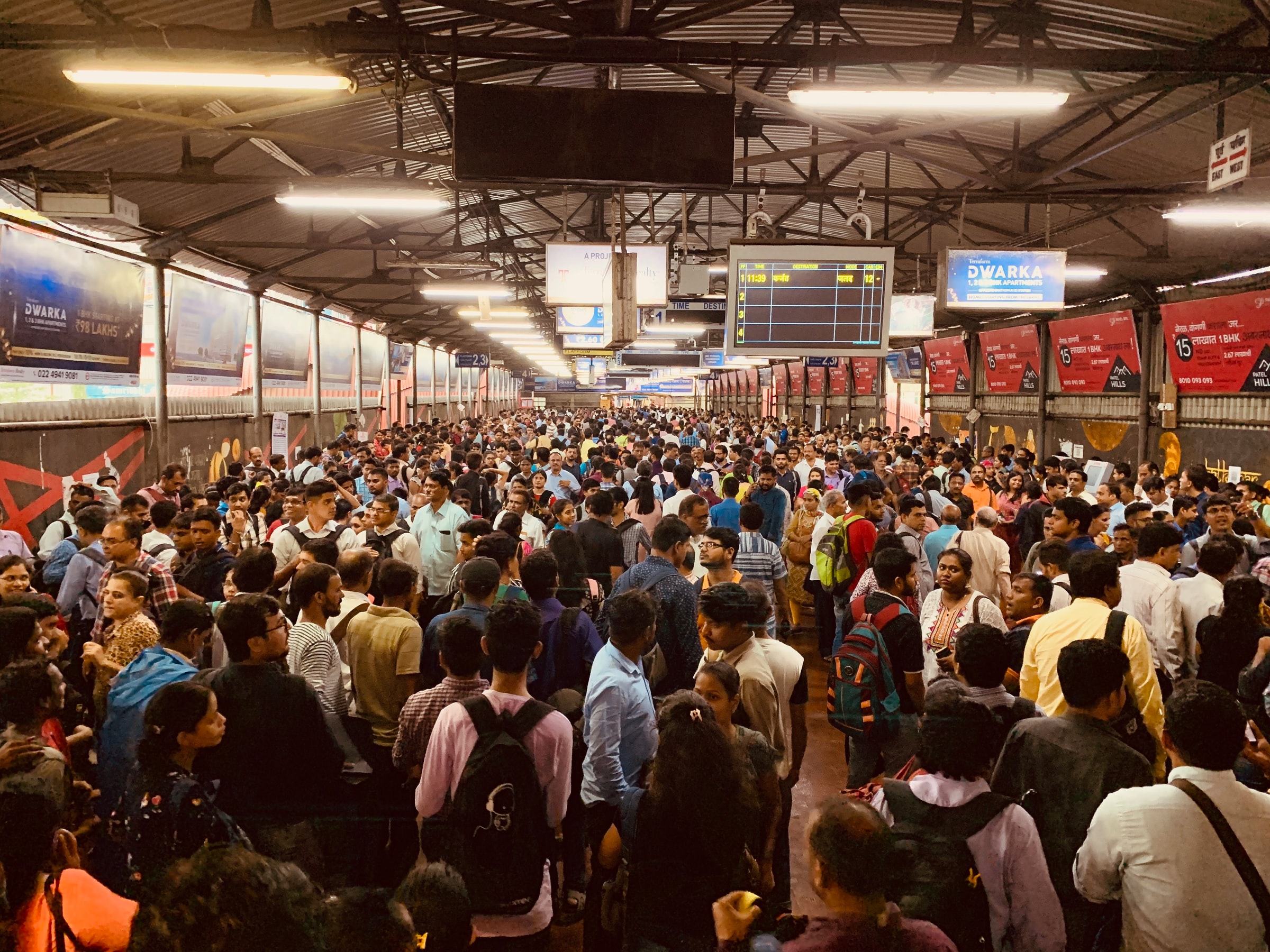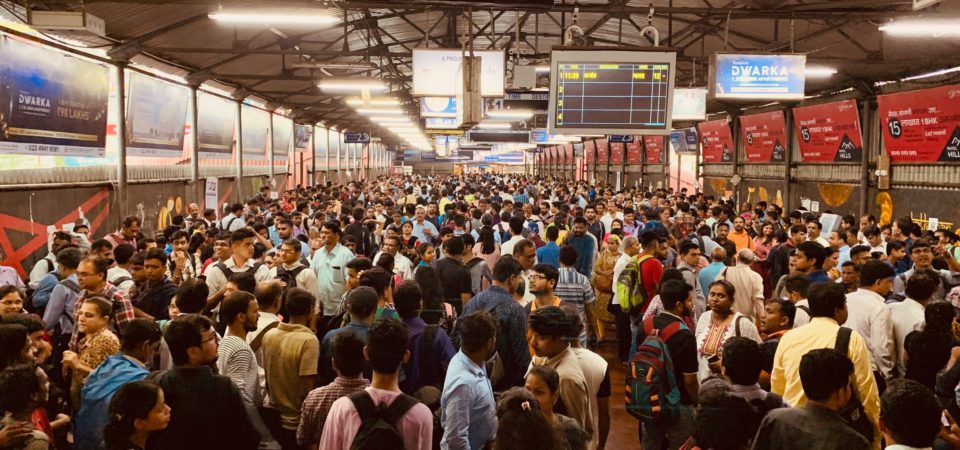This article appeared first at The Overpopulation Project on June 22, 2021
Sometime this decade, India is set to overtake China as the most populous nation on Earth. Below, a reader from India reflects on what these immense numbers mean for his country’s future. Despite being in the position of being able to have a family of his own, he chooses not to in protest. For him the onus must be equally shared by the government and the people in keeping the birth rate in check.
My name is Gaurav Bhatt and I live in the bustling city of Mumbai, India.
I was born in 1986 when the population of India was 801,000,000. Currently it is somewhere around 1,393,000,000 and counting. Growing up, we as kids never heard of the words overpopulation or climate change. But living in my city you could always feel the sense of rush, crowds, noise, ever-rising.
I started sailing on merchant ships pretty early in my life at the age of 18 which caused me to be away from the country and my home for long periods of time. But every time I got back after a tenure on the ship, I felt things thickening, tightening.

Now being 34 years old, my city looks and feels like a can of sardines. It has been like this for a while. Rivers of people almost climbing over each other just to get to work. This is just my city. One city in a country of over a billion people. And growing. And so my question: how much is enough?
In a world with fast depleting resources, all ecological systems in decline, progress has to be measured with its impact on the environment. I ask, when are we going to address the numbers? I very early in my life decided to never have children of my own. But I know this isn’t a decision that can be or should be imposed on anyone. Life is precious. Having children is precious. It’s what living organisms do, procreate.
But have you thought about what kind of world we are giving our children to inherit? I know a lot of my friends and people in general share the same concerns that I have, but eventually end up going down the same road of having their own children and somehow thinking the over-population problem will go away on its own. Or in some cases, they blame the poor and uneducated, other religions, in short anything and everything except looking at their own selves. This is human nature. And I do not blame them or anyone.
The on-going COVID crisis has already shown how much pressure the population puts on the health system. But at all times it’s putting pressure on all other systems that exist! Natural or man-made! We have to understand that growth of any kind, economic or human population, cannot be endless. There has to be a limit. We can choose to limit the birth rate.
I feel a very important thing to do right now is to first and foremost bring this problem of overpopulation to the forefront. Most people listen only when they are bombarded with something and when it’s everywhere they go. Nowadays anyone you talk to has some idea about global warming and other ecological issues. But they hardly ever speak about birth control. And even if they do, they always talk about the “others” who are worsening the population problem.
I feel the youth of today can sense something is terribly wrong, but they need direction. The older generation still is stuck to their ways and more often than not will enforce their world views onto their kids. I know a few women who regret having their second child but were forced to have them as “one child will have no one to play with” amongst other reasons. I know there isn’t anything wrong with having two children. But you can see how this mentality shapes a nation.

We have a very diverse cultural and religious mix of people in my country, where there are a lot of caste issues and animosity towards other religions, above all in the Hindu/Muslim divide. When I declared to some members of my family that I would never have kids of my own, I was subjected to taunts such as – “no wonder the Muslims in our country are increasing when Hindu boys like you are refusing marriage and kids.” Not one person asked me if I made such a decision for environmental reasons.
So you see there has to be a better sense of ecological responsibility. We have very strong associations with lineage and carrying forward the names of our forefathers. And how the population of the people who belong to our religion should never be less than the people of other religions. But this, like other outmoded notions, has to be superseded by thoughts about the big picture, which is our planet and its resources.
My view is to have the hierarchy of allegiance changed, wherein Mother Earth moves upward in that ladder to almost the number 1 position. This is what we must pass on to our children. We will not survive on a dying Earth.
The way forward
I think the most important factor for our country or any country for that matter should be to have a target. Policies and the people of the country should strive to keep the population hovering around that ideal value. That sets a visible goal for everyone to aim for.
Well, what is the ideal population bracket for the country of India? I am not sure of that figure: 1 billion, half a billion? It should be somewhere around a figure where the government feels confident that it can sustain that number of people in good living conditions of health, wealth, education, with minimum impact to the environment.
But I am very strong in the belief that now the term ‘overpopulation’ and birth control have to be in the faces of everyone living in my country. The government can help make policies, but it finally comes down to us to each do our part to reach that target.
But we do not see it. No major news television networks in my country raise this issue. No celebrities talk about it. No Instagram or Facebook influencers talk about it. Why? I ask myself this every day. We will talk about everything in our country except explicitly talking about population. The reason I believe is power. Many political parties refuse to touch this subject as they know doing so will ensure them not winning the next elections. But this has to change. I want to see this issue being raised in the way that racism, gay rights, rights for women, climate change and other issues have gotten their voice out to everyone at that large scale which brought about real change. All these above-mentioned issues were first raised by the People. Which then led the governments to change.
Why should we expect the issue of population control to be any different?
In my country we talk about limiting a family to two kids. Well what about families that are having zero kids but adopting instead? What about people who are refusing to have kids in protest of this population explosion? I want to change the dialogue when it comes to population from just policy to the people themselves. We must find a platform where people can come together and create solutions along with government policy. We must not confuse quantity with quality.
If we talk incentives, why not offer them? Why not offer health benefits and pension and early retirement along with free education to their children to couples who adopt instead of having their own kids? Similar incentives for people who choose to have a single child? Such are among the incentives the young population needs today. And I know they will respond. Once they hear the alternatives, they will stop listening to the old advice which is causing this population explosion to run unabated.
People of India, how do you think we can get everyone talking about birth control? Let us get the conversation started.
Gaurav Bhatt
Mumbai, India
email: gauravholic@hotmail.com
The MAHB Blog is a venture of the Millennium Alliance for Humanity and the Biosphere. Questions should be directed to joan@mahbonline.org
The views and opinions expressed through the MAHB Website are those of the contributing authors and do not necessarily reflect an official position of the MAHB. The MAHB aims to share a range of perspectives and welcomes the discussions that they prompt.

